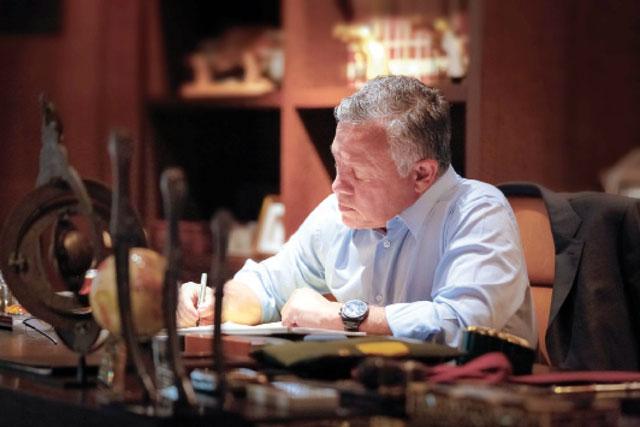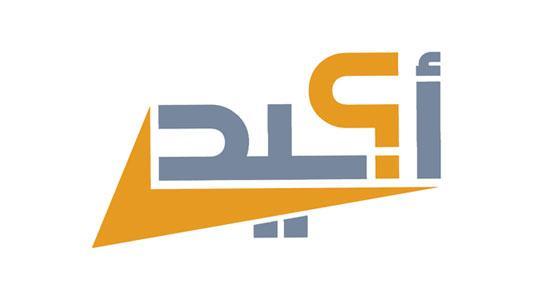You are here
New laws, restoring public-gov’t trust key to counter fake news, rumours — experts
By Rana Husseini - Jan 31,2022 - Last updated at Jan 31,2022

Representative image. Media specialists on Tuesday said the government needs to introduce new and more open methods and laws to prevent the spread of rumours and false news (Photo courtesy of Akeed Facebook page)
AMMAN — Media specialists on Tuesday said the government needs to introduce new and more open methods and laws to prevent the spread of rumours and false news.
Their remarks follow a letter that His Majesty King Abdullah sent to the Jordanian people on his 60th birthday on Sunday.
In the letter, the King warned of the negative repercussions of the spread of rumours, and the absence of objective and rational dialogue.
The King also stressed that governments must “operate transparently, clarifying their work mechanisms openly and responsibly, to dispel destructive rumours with convincing facts and replace futile argumentation that feeds on the lack of information with informed debates”.
The only way out of this cycle lies in a true partnership between the government and citizens to counter rumours, false news, and misinformation, the King stated in his letter.
“Together, we must reclaim the spaces of public dialogue to prevent the saboteurs hiding behind their screens from sowing negativity, frustration, and distrust in our society and nation. Trust is the basis for society’s resilience,” the King said in the letter.
“If it is shaken, it destabilises our entire value system. Those who seek personal battles and heroic pursuits at the expense of the nation’s interest have no place among us,” the King warned.
Former minister Samih Maaytah said that resolving the trust deficit between the public and government “will not happen overnight”.
This issue needs a lot of effort on the part of the government so that it can rebuild trust with the people and fulfil its promises, Maaytah told The Jordan Times.
“This will entail a long-term programme by the government to ensure that its promises to the public are met and not just rhetoric,” Maaytah said.
Media and communication consultant Bayan Tal said that the King pointed out two important points regarding the importance of the availability of information and the harm done by populism.
“The lack of information is affecting the work of public sector employees, politicians and journalists,” Tal told The Jordan Times.
Tal added that both the government and the media “are not doing their job properly”.
“The government is not providing the needed information and the media is not doing enough to seek information and to simplify complex issues to inform the public about policies that impact their lives,” according to Tal.
This debate should be happening in the media and the government should hold constant meetings with the press to disseminate information, Tal added.
Otherwise, Tal maintained, “we will create a vacuum filled with rumours, hatred, frustration and misinformation among the public”.
At the same time, Tal added, people need to understand the difference between constructive criticism and destructive negativity.
“Here debate skills are also crucial for people to appreciate different views,” Tal stressed.
One solution to this problem is more press freedom and a nationwide media literacy campaign for politicians, citizens, students and youth.
“This can only be done through the collaboration that King has called for between the public sector, private sector and civil society organisations to ensure these skills are available to everyone and integrated into schools and university curricula,” Tal added.
Jordan Press Association member Khaled Qudah said there is an urgent need to introduce new laws that “would allow us to get information”.
“I believe the current law was born dead and was infiltrated with the martial laws’ dictations that included many restrictions related to the freedom of the press,” Qudah told The Jordan Times.
Qudah added that the law was drafted in a “manner that was aimed to restrict freedom of the press and give officials the leeway to avoid answering crucial inquiries”.
“The current law must change because it is filled with ambiguities and generalities that basically help decision makers refraining from giving us the needed information that the public should know,” Qudah added.
The same applies to the government spokesperson who is there “to prevent us from getting information”.
“Government spokespersons are always putting hurdles in our path by casting doubt of our work and intentions rather than helping us get the necessary information,” Qudah charged.
Qudah also criticised the “consecutive general and ambiguous government narratives, which only lead to an increase in the public’s suspicions, disbelief, undermining anything the government says or does”.
Rana Sabbagh, senior editor, Middle East/North Africa, at the Organised Crime And Corruption Reporting Project (OCCRP), said that fake news can be countered by independent press and “not by propaganda media that has no credibility”.
“I strongly believe that fake news can be countered by allowing journalists to access public data and not to hide it behind scarred officials or bureaucrats,” Sabbagh told The Jordan Times.
This, Sabbbagh added, requires from those running media houses to “be professional … and to speak truth to power in favour of public good”.
Related Articles
AMMAN — Experts, on Wednesday, weighed in on His Majesty King Abdullah’s article on social media saying it includes ideas on how best to gua
AMMAN — The spread of rumours and fake news is among the major challenges facing the media, Minister of State for Media Affairs Jumana Ghuna
AMMAN — The Jordanian Media Credibility Monitor (AKEED) has recently released its monthly report, documenting the rumours that circulated du













